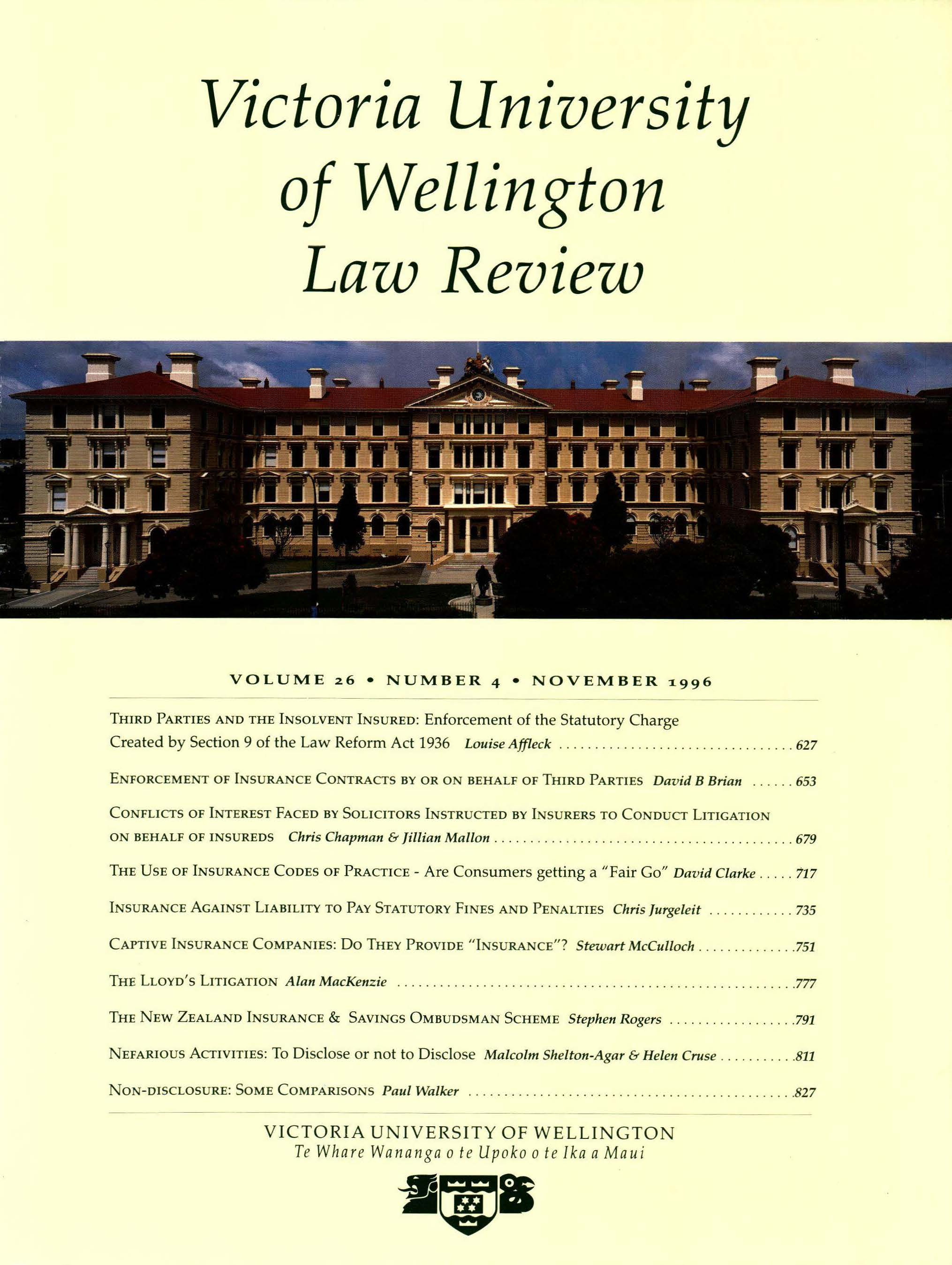Nefarious Activities: To Disclose or Not to Disclose
DOI:
https://doi.org/10.26686/vuwlr.v26i4.6140Abstract
It is well established that insurance contracts are contracts uberrimae fidei ("of the utmost good faith"). From this foundation derives the insured's duty to disclose facts material to the proposed risk. This duty is placed upon the insured because s/he normally has the best knowledge of facts material to assessing the risk. In New Zealand today, whether a fact is "material" (and therefore needs to be disclosed) is based upon the view a "prudent insurer" would take of it. While the insured will usually know the all of the facts relevant to an assessment of the risk, s/he will often not know which of those facts would be of importance to a "prudent insurer". Confusion on such issues has given rise to considerable case law in the area. This article first examines what must be disclosed at common law - which of a general range of "nefarious activities" an insured owes it to his/her insurer to come clean about; the range and breadth of what must be disclosed would surprise most insured parties. Secondly, the article examines situations where insured parties are relieved of the general disclosure obligation - what is at common law capable of being material might not need to be disclosed in specific situations - including situations where the conduct of insurers or wording of the proposal (or other insurer supplied documents) might allow an insured to escape the general duty.
Downloads
Downloads
Published
How to Cite
Issue
Section
License
Authors retain copyright in their work published in the Victoria University of Wellington Law Review.


